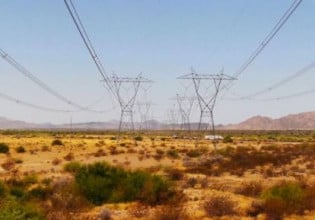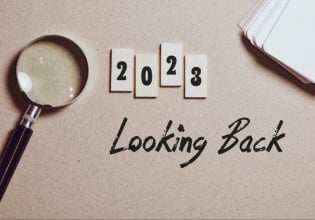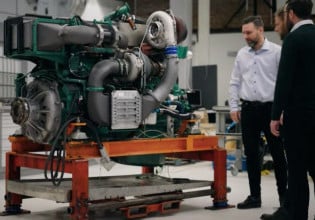Universities Consider Micro Nuclear for Campus Power Systems
A new generation of micro nuclear reactors is being developed to provide a decarbonized electricity alternative at a lower scale.
Tiny nuclear reactors that produce one-hundredth the electricity of standard nuclear power plants will soon be an energy alternative universities are interested in.

A nuclear power plant. Image used courtesy of Pixabay
Microreactors, small nuclear reactors that generate up to 20 megawatts of thermal energy and can function independently as part of a microgrid or the electric grid, are 100 to 1,000 times smaller and often designed to be portable. Small modular reactors (SMRs), the next size up from microreactors, range from 20 to 300 megawatts.
Benefits of Microreactors
Microreactors offer unmatched reliability and operational flexibility, operating for years without refueling. The renewed interest in microreactors is driven by several factors, such as generating power in remote locations, military installations, hospitals, college campuses, and areas affected by natural disasters.
Universities are exploring the potential for nuclear technology to power their buildings and aiming to replace fossil fuels that contribute to climate change.
The University of Illinois is committed to advancing this technology as part of a clean energy future, with plans to seek a permit for a high-temperature, gas-cooled reactor developed by the Ultra Safe Nuclear Corporation. The plan is to have the reactor operational by early 2028.
In 2022, Penn State University and Westinghouse signed a memorandum of understanding to collaborate on microreactor technology. Westinghouse's Senior Vice President for Advanced Reactor Programs, Mike Shaqqo, expects universities to be the first adopters of the new technology.
Penn State aims to prove the technology’s viability for industries in the Appalachian region, particularly steel and cement manufacturing. A microreactor could help the university and industries reduce their reliance on natural gas.
Microreactors Complement Renewable Energy
Professor Jean Paul Allain, head of Penn State’s nuclear engineering department, sees microreactors as a complement to renewable energy. A 10 MW reactor can be installed on less than an acre of land, whereas a comparable wind or solar farm would require far more space to produce the same amount. Penn State aims to install a microreactor by 2030.
Purdue University Indiana is another university exploring nuclear power options for their campus.
Companies working on scaling down reactors include Last Energy in Washington, DC, Westinghouse, the Department of Defense, and Natura Resources.

Microreactors complement renewable energy. Image used courtesy of Pixabay
Challenges of Micro Nuclear Reactors
Smaller reactors face similar challenges to large-scale nuclear plants, such as safely disposing of radioactive waste. While many are unconcerned, some do not support a transition to microreactors.
The nuclear power safety director at the Union of Concerned Scientists (UCS), Edwin Lyman, is among the opposition. One of the primary concerns is the amount of uranium needed to be mined and enriched to generate electricity. Microreactors will require more uranium than conventional reactors. Additionally, the fuel costs are expected to be higher, and more depleted uranium waste could be generated. Lyman argues that many people could overestimate the benefit of microreactors in solving climate change.
Another concern is the potential for terrorist attacks. Lyman fears that some designs may use fuels attractive to terrorists building crude nuclear weapons. The UCS supports using nuclear power but wants to ensure it is safe. Finally, the U.S. has no national storage facility for spent nuclear fuel, and the accumulation of nuclear waste is a growing problem. According to Lyman, microreactors will only compound the problem by increasing the number of locations with nuclear waste.
At this point, it is still being determined how successful the micro-nuclear endeavor for universities will be. Many nuclear scientists are speaking out in favor of the technology, but as with many things, the question will be whether the benefits outweigh the safety concerns.






